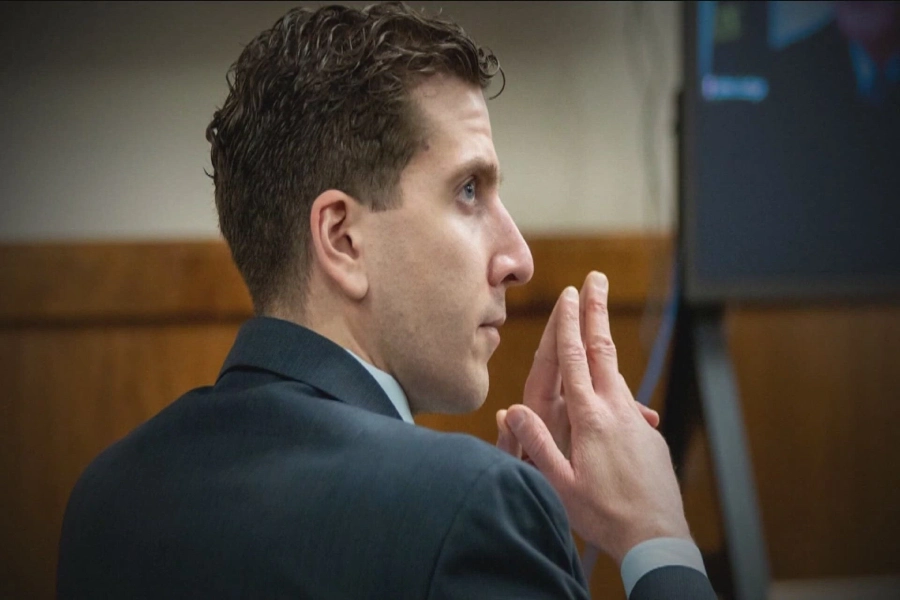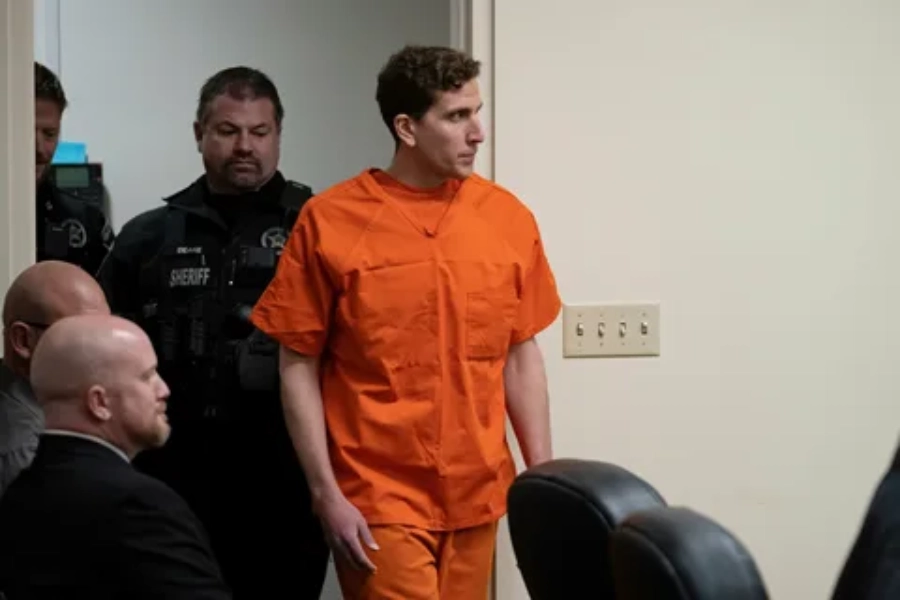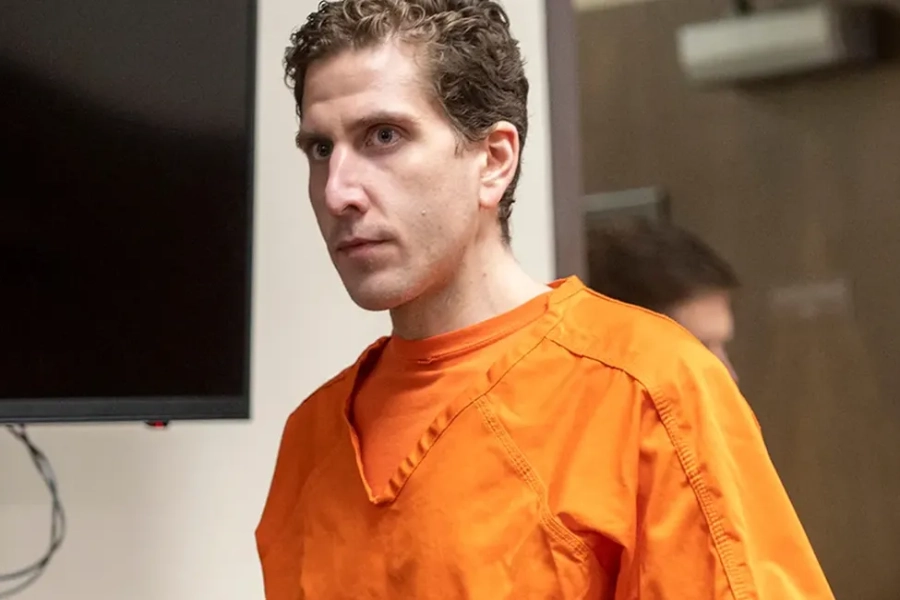The Bryan Kohberger case has gripped national attention since November 2022, when four University of Idaho students were tragically stabbed to death in an off-campus residence in Moscow, Idaho. As the accused, Kohberger faced four counts of first-degree murder, one felony burglary charge, and the potential for a death sentence under Idaho law. However, in June 2025, a dramatic legal development emerged: Kohberger agreed to a plea deal, accepting guilt on all charges in exchange for avoiding the death penalty. This article provides a detailed legal analysis of the case, the plea agreement, and its broader implications for criminal justice and victim rights.

Background of the Case
Bryan Kohberger, a criminology student at Washington State University—located approximately 15 minutes from Moscow—was arrested after months of investigation and forensic analysis. DNA evidence found on a knife sheath, along with cellphone location data and surveillance footage, placed him at the scene of the murders. The victims—Kaylee Goncalves, Madison Mogen, Xana Kernodle, and Ethan Chapin—were all University of Idaho students, aged between 20 and 21, who lost their lives in a brutal attack that shocked the community.
The case involved a massive law enforcement response, with over 100 personnel from local police, Idaho State Police, the FBI, and other agencies collaborating across state lines to bring Kohberger to justice. His arrest during the 2022 Christmas break marked the end of an intensive manhunt.
Legal Charges and Potential Penalties
Kohberger was charged with four counts of first-degree murder, a charge that in Idaho carries the possibility of life imprisonment or the death penalty, as the state allows capital punishment for aggravated murder. The additional felony burglary charge stemmed from the unlawful entry into the victim’s home during the commission of the murders.
If convicted at trial, Kohberger faced the risk of capital punishment, a sentence increasingly rare but still legal in Idaho. The prospect of a death sentence underscored the high stakes for both prosecution and defense.

The Plea Deal: Terms and Controversy
On June 30, 2025, news broke that Kohberger had agreed to a plea deal, pledging guilty to all charges. In exchange, prosecutors agreed to remove the death penalty from the table. Under the terms:
-
Kohberger would receive life imprisonment without the possibility of parole.
-
He would waive all rights to appeal.
-
The plea deal would avoid a lengthy, potentially traumatic trial for the victims’ families.
-
The prosecution emphasized ensuring a guaranteed conviction and finality to the case.
This development was confirmed by a letter from the Latah County Prosecutor’s Office, stating their intent to seek justice while sparing the families from the ordeal of a full trial and appeals process.
However, the plea agreement has been met with strong opposition from some family members, particularly the Goncalves family, who have vocally demanded the death penalty. They have expressed frustration and heartbreak at being excluded from plea negotiations, highlighting the tension between prosecutorial discretion and victims’ rights in criminal justice proceedings.
Legal and Ethical Considerations
Prosecutorial Discretion and Victim Rights
The Kohberger plea deal illustrates a fundamental tension in the criminal justice system: while victims and their families have the right to be heard, they do not have final authority over prosecutorial decisions. Prosecutors are granted broad discretion to decide whether to offer plea deals based on evidence strength, likelihood of conviction, and other strategic considerations.
Idaho law requires that victims’ families be consulted, but their input is advisory rather than determinative. This legal framework can lead to conflicts when families’ desires, such as pursuing capital punishment, diverge from prosecutors’ assessments.
Death Penalty in Idaho
The death penalty remains legal in Idaho but is rarely used. This case, given its high-profile nature and multiple victims, was considered a prime candidate for capital punishment. However, the complexities of trial risks—such as the possibility of jury nullification or an acquittal—may have influenced prosecutors and the defense to prefer a guaranteed life sentence.
Plea Bargaining as a Judicial Tool
Plea deals serve as an essential tool in the criminal justice system to resolve cases efficiently and reduce trial backlogs. For defendants, a plea can reduce potential penalties, while for the state, it ensures swift justice and cost savings.
In capital cases, plea agreements can be especially contentious, as they weigh the interests of justice, closure for victims, and constitutional protections for the accused.
The Waiver of Appeals
Kohberger’s agreement to waive appeal rights is significant. It precludes him from challenging his conviction or sentence in higher courts, potentially expediting finality. However, it also raises concerns about whether defendants fully understand the consequences or feel pressured into accepting deals due to the threat of harsher penalties.
Broader Implications and Public Reaction
The Kohberger case has sparked national debate on several issues:
-
The balance between swift justice and thorough trials.
-
The role of victim impact and participation in plea bargaining.
-
The continued use and ethics of the death penalty in the U.S.
-
The impact of forensic evidence and technology in modern prosecutions.
Families of the victims remain deeply divided. While some accept the plea deal as a form of justice and closure, others see it as a miscarriage of justice. This divergence reflects broader societal struggles with reconciling retribution, rehabilitation, and mercy in criminal law.
Conclusion
The Bryan Kohberger plea deal represents a pivotal moment in a tragic and complex case. It underscores the delicate interplay of legal strategy, victim advocacy, and the pursuit of justice within the American criminal justice system. While the agreement spares the community and families from a painful trial, it leaves unresolved questions about accountability and the death penalty’s role in modern jurisprudence.
For legal professionals, scholars, and the public, the case serves as a stark reminder of the challenges faced in high-profile criminal prosecutions, especially those involving multiple victims and emotionally charged circumstances.
FAQ
1. Who is Bryan Kohberger?
Bryan Kohberger is the suspect accused of killing four University of Idaho students in November 2022. He was a criminology student at Washington State University.
2. What charges does Bryan Kohberger face?
He faces four counts of first-degree murder and an additional charge of felony burglary.
3. Has Bryan Kohberger accepted a plea deal?
Yes, in June 2025, Kohberger agreed to plead guilty in exchange for avoiding the death penalty and receiving a life sentence without parole.
4. What was the evidence against Bryan Kohberger?
Evidence included DNA found on a knife sheath at the crime scene, cellphone records, and surveillance footage placing him near the victims’ home.
5. Why did Bryan Kohberger avoid the death penalty?
He accepted a plea deal with prosecutors, which took the death penalty off the table in exchange for a guilty plea.
6. When will Bryan Kohberger be sentenced?
If the plea is accepted, sentencing is expected in late July 2025.
7. How have the victims’ families reacted to the plea deal?
Reactions vary; some families, like the Goncalves family, strongly oppose the deal, demanding the death penalty, while others accept it to avoid a painful trial.
8. What happens if Bryan Kohberger doesn’t accept the plea deal?
The case would proceed to trial as scheduled, with the possibility of a death sentence if convicted.
9. Can Bryan Kohberger appeal his sentence?
As part of the plea deal, Kohberger agreed to waive his right to appeal.
10. What impact has this case had on Idaho’s legal system?
The case has sparked debate on the death penalty and victim rights laws in Idaho, highlighting tensions between prosecutorial decisions and families’ wishes.

